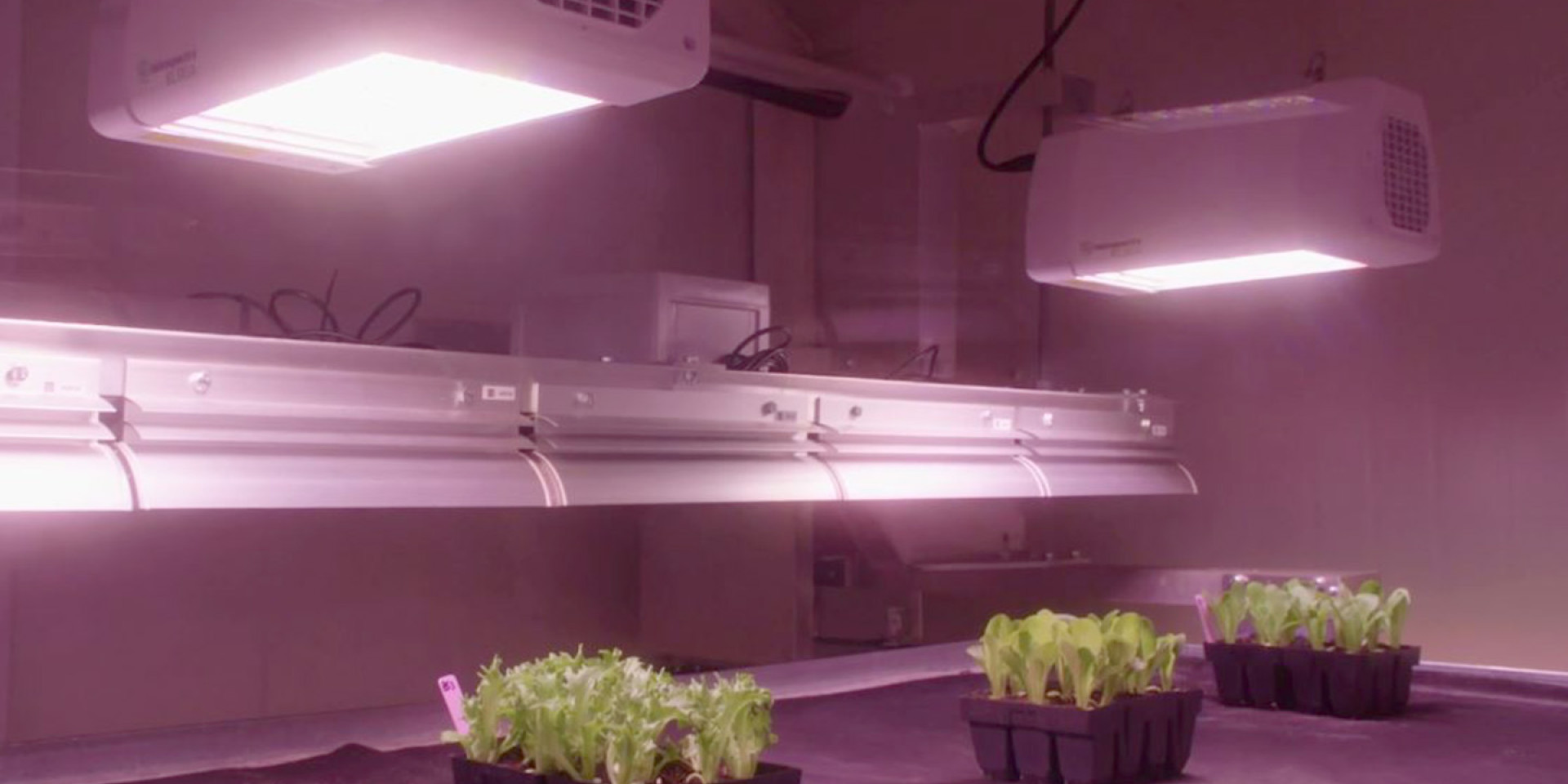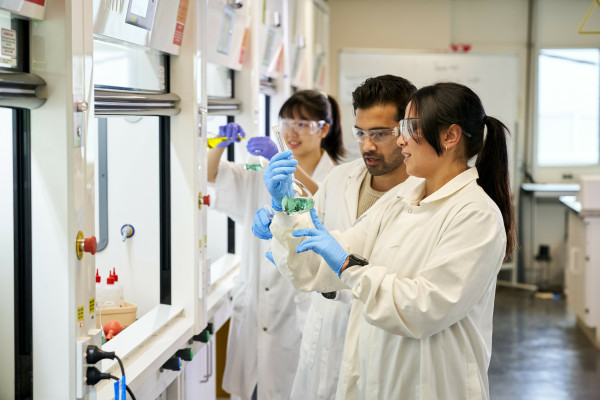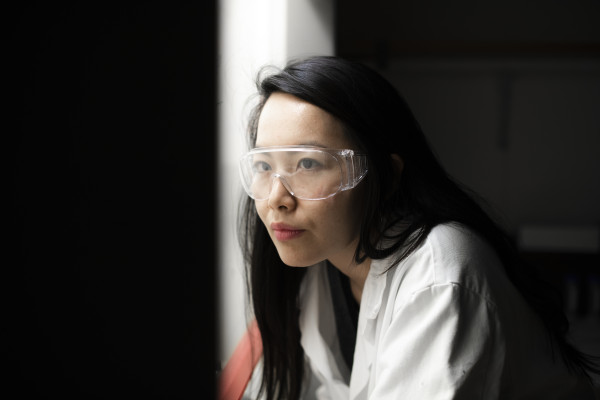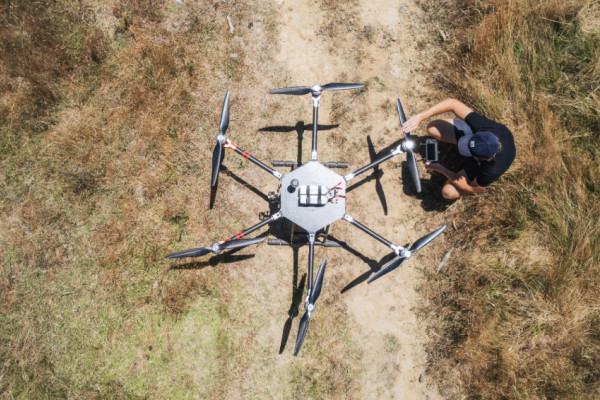Tackling increases in global food demand will be no easy feat. However, BioLumic is leading the way with UV light technology that enhances plant production. The proof is in the lettuce, literally.
At a glance
- With global food demand set to increase significantly, BioLumic’s UV light technology enhances plant productivity, helping tackle some of the biggest challenges in agriculture around how to produce more food with less.
- With the help of a range of R&D grants from Callaghan Innovation, BioLumic has been able to heavily invest in R&D and focus globally from day one.
- BioLumic has partnered with major international growers, using its technology to help increase lettuce yields by 10 per cent.
“The support in capability development in particular is really valuable to us.”
Dr Jason Wargent, Founder and Chief Science Officer, BioLumic
Plant power, and the power of UV light, to the rescue
With an additional 1 billion people expected on the planet in the next decade or so, and our natural resources under increasing pressure, how do we feed more people with less?
The answer may just come in the form of UV light, specifically agritech company BioLumic, who harness the power of UV light to significantly improve plant performance, such as increased crop yields.
Based on science developed by Dr Jason Wargent, BioLumic’s Founder and Chief Science Officer and a world expert on UV photomorphogenesis (that’s how the development of form and structure in plants is affected by UV light), BioLumic’s technology works by manipulating quantities of UV light at different wavelengths. Essentially, they can accelerate or slow down certain growing characteristics in plants according to specific ‘light recipes’.
“UV is this magic wand,” explains Wargent, “that can do so many things to a plant – everything from improving yields to increasing resistance to disease to enhancing the production of certain compounds.”
With such a short, one-time treatment needed in order to ‘switch on’ certain long-term plant characteristics, BioLumic is
not only a natural solution for growers, reducing need for the likes of chemical sprays, but also a practical one,
Wargent says.
Putting R&D at the heart of the business
More than 90 per cent of BioLumic’s spend is channelled into research and development (R&D), with its own R&D facility in Palmerston North and a research facility in the US. Alongside that, Wargent says a big focus is on developing the bandwidth of its team to increase the range of solutions it can offer to growers of different crops and growing environments.
Critical to helping develop its talent pipeline, Callaghan Innovation’s support has included R&D Career Grants and R&D Experience Grants, as well as funding for specific R&D projects.
“The support in capability development in particular is really valuable to us,” says Wargent, “and it’s valuable to New Zealand more generally as well, because it provides a conduit between the university research space and startup companies like ours. The startup economy and innovation ecosystem need a lot of talent, and through Callaghan funding we can actually play a part in making that happen.”
Going global from the off
Simply, BioLumic’s stock is growing. And its success has come largely from its global focus right from the get-go. It has worked with major US growing companies, as well as a large UK-based grower with operations across Europe, to develop its technology for growing lettuce, with results so far showing increased yields of 10 per cent. And, it’s also working with major growers to apply its technology to commercial strawberry and tomato crops.
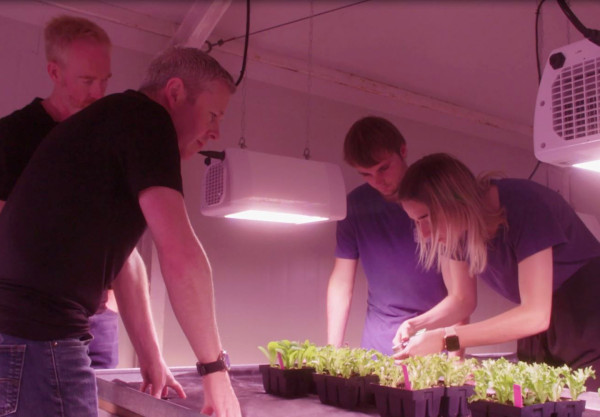
Jason Wargent (left) with some of the BioLumic team
For the company’s management, it’s been about learning fast and learning early. “Rather than running trials solely on home soil and later exploring bigger opportunities offshore, we focused on running trials with major offshore customers from the very beginning,” says Wargent.
Nicky Molloy, Callaghan Innovation’s Agritech Business Innovation Advisor adds “With BioLumic they realised New Zealand wasn’t a market where they could scale so they went straight offshore and picked one of the world’s biggest lettuce growers to work with. It’s a big ballsy move to do that, but by engaging with world-leading companies it gives them credibility in the eyes of other potential customers and investors.”

Nicky Molloy, Callaghan Innovation Agritech Business Innovation Advisor
That ballsy move has been paying off. In 2020, they closed the second round of its Series A capital raise, taking the round to US$6.7 million, including backing from global agritech investors such as Finistere Ventures and Canopy Rivers – the investment arm of one of the world’s largest medicinal cannabis companies. That was also backed up by a five-year, $2.5 million grant from the Ministry of Business, Innovation and Employment.
